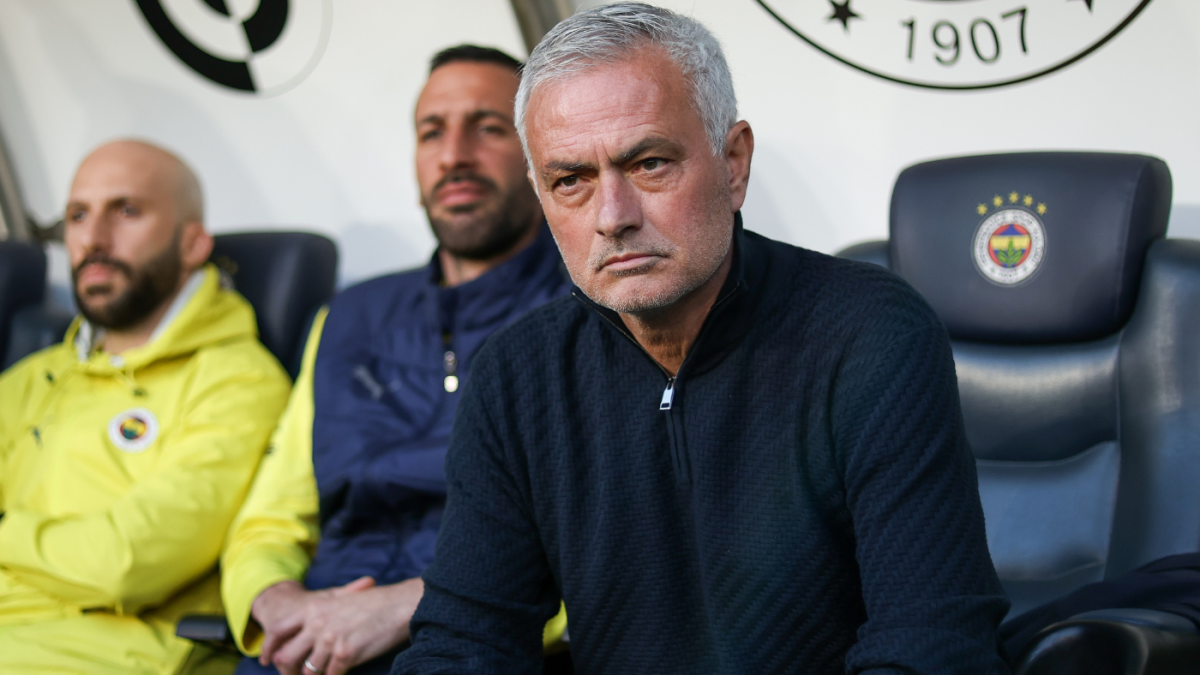Navigating the 2026 World Cup Coaching Landscape: José Mourinho’s Potential Impact
The approach of the 2026 FIFA World Cup is stirring considerable excitement and speculation in the football world, particularly around the managerial seats of key national teams. Among these narratives, José Mourinho’s potential moves stand out. His next career steps could profoundly influence teams like Italy and Portugal, while also adding layers of intrigue in other football powerhouses and emerging markets. An in-depth look into this unfolding scenario reveals much about Mourinho’s enduring allure and the strategic calculations shaping international football’s future.
Italy’s Quest for Rebirth: Mourinho as the Tactical Remedy?
Italy’s national team finds itself at a critical crossroads after the dismissal of Luciano Spalletti, triggered by a disheartening 3-0 loss to Norway in World Cup qualifiers. This defeat not only jeopardizes Italy’s direct path to the 2026 World Cup but also highlights deeper, systemic challenges. A glaring issue is the limited presence of Italian players in Serie A—hovering just above one-third—which weakens the talent pipeline feeding the national squad.
With this backdrop, Italy’s football federation urgently seeks a new manager capable of restoring confidence and competitiveness. Initially, Claudio Ranieri surfaced as a top candidate, bolstered by endorsements from respected figures like Fabio Capello. However, his reported refusal leaves space for an alternative vision. Enter José Mourinho: a manager with an illustrious legacy in Serie A and a proven track record in managing pressure-filled environments.
Mourinho’s reputation for tactical astuteness and motivational skills could provide the much-needed spark to an Italy side craving stability and innovation. His prior success in Italy—most notably winning the treble with Inter Milan—adds weight to his appeal. As Italy prepares for a commercially and emotionally charged qualifying campaign, Mourinho’s adaptability and battle-tested leadership style may offer a roadmap back to the pinnacle of international football.
Portugal’s Transitional Moment: Reuniting Mourinho and Ronaldo?
Simultaneously, Portugal’s national team is navigating its managerial future amidst mixed results under Roberto Martinez. Reports suggest the Portuguese federation is courting Mourinho to replace Martinez, seeking a resurgence as the World Cup qualifying rounds heat up. The prospect gains emotional and strategic depth due to Mourinho’s historic relationship with Portugal’s iconic forward, Cristiano Ronaldo.
The potential reunion with Ronaldo—who is nearing the end of an extraordinary career—could energize the squad both on and off the pitch. Mourinho’s strategic flexibility is a significant asset in international tournaments, where quick adjustments and psychological readiness often determine success. Beyond tactics, Mourinho brings an aura of leadership forged in high-stakes European competitions, rendering him a formidable candidate to steer Portugal towards World Cup ambitions.
Despite media buzz and contract maneuvering—including Portugal’s readiness to negotiate Mourinho’s release from Fenerbahçe—the coach himself remains non-committal, emphasizing current club focus. Nevertheless, with Fenerbahçe contracts possibly ending around summer 2026, timing aligns favorably for a managerial switch that could reshape Portugal’s footballing trajectory.
Broader Managerial Dynamics: Brazil, England, and Emerging Football Markets
Expanding the lens reveals Mourinho’s name emerging in other coaching lights. Brazil’s national team struggles with qualification uncertainties, and while Carlo Ancelotti’s extension at Real Madrid reduces his availability, names like Mourinho, Jorge Jesus, and Abel Ferreira are under consideration. Mourinho’s preference for club football tempers expectations here but does not entirely close the door.
The English FA, looking beyond Gareth Southgate’s tenure, keeps Mourinho in mind due to his Premier League pedigree and familiarity with English football culture. Meanwhile, Saudi Arabia offers a lucrative two-year contract reportedly worth $125 million, positioning Mourinho as potentially the world’s highest-paid manager. This proposal reflects broader shifts where emerging football nations aggressively pursue elite coaching talent to accelerate their competitive status.
Club Commitments and The Next Chapter for Mourinho
Amid international speculation, Mourinho’s current club commitments remain central. His swift transition to Fenerbahçe after a high-profile Roma exit underlines his resilience and adaptability. Yet, his openness to roles offering full managerial authority—avoiding restrictive technical setups—suggests he is weighing options carefully.
Rumors of a sensational return to Inter Milan and possible Premier League re-engagement speak to his lasting reputation and demand. Such opportunities could influence Mourinho’s timeline and decisions regarding international management roles.
The Defining Crossroads in Football Leadership: A Wrap-Up
José Mourinho’s potential involvement in the 2026 World Cup coaching scene represents more than a career move; it symbolizes a focal point in global football’s unfolding drama. Italy’s search for renewal, Portugal’s quest to revive past glories, and the broader interest from Brazil, England, and emerging markets position Mourinho as a pivotal figure who could shift the strategic and emotional landscapes of the sport.
If Mourinho reembraces international management, his blend of tactical mastery, competitive savvy, and charismatic leadership may reignite national passions and recalibrate expectations. Whether he commits to the challenge or stays with club football, Mourinho’s decisions will resonate loudly in the run-up to the 2026 World Cup, potentially scripting a new chapter for “The Special One” on football’s grandest stage.

